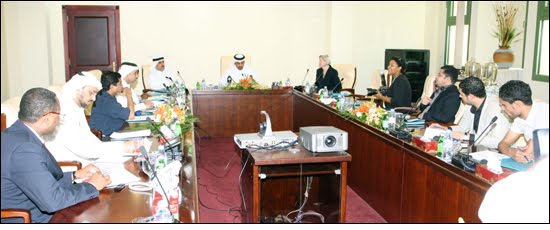CCQ Begins

Monday, May 18, 2009
Confessions of a Community College President
Waiting for a flight home at DIA on the weekend following election of President Barak Obama, I visited with a fellow traveler about the recent events. Invigorated by the national election discussion, I volunteered that my career was set with my first teaching position in Virginia Beach, Virginia, three years after landmark Civil Rights legislation.The fellow traveler responded that his family had moved to the Chesapeake Bay area from New Jersey during the same time period I taught Virginia History there 1968-70. He described his amazement at placement in a ‘Black’ school because of his Jewish heritage. I asked him if he remembered the 1952 Virginia History textbook used sin the 1960's that highlighted arrival of the first slaves as a significant economic event. He revealed that he was now a consultant with the U.S. National Parks and that the Virginia History text to which I referred had finally been rewritten in the 1990's following decades of use.I reminisced with the fellow traveler about the excitement of my first teaching assignment following college graduation and move to the East Coast for my husband's Viet Nam-era deployment. Because of the Baby Boom, classes had swollen to almost-forty students. More importantly, most of the African-American students had been placed in Special Education due to their separate and not equal educational experiences. In that 1960’s world of fresh integration rules and large classes to accommodate rapid social change, the vocational education legislation of the 1970’s was yet to come; so Special Education students were assigned vocational classes in high school.Only one African American student, whose academic skills did not match his ability or age, attended my history class; and I was worried about his high school completion. At my first parent-teacher conference I was committed to recommending to his mother that she give permission for her son to transfer into Special Education/Vocational Education classes, rather than risk dropping out of school. With true determination, the mother, who picked kale to support her family, countered my well-meaning recommendation: “Mrs. Hansen, Jerome is the smartest of my 17 children. I want just one of my children to go to regular school”. What a mom! Of course, Jerome continued to go to ‘regular school’. Jerome's mom taught me ro embrace the resilience of human intellect and spirit which had eluded our county for over two centuries.To keep his mom's lesson alive, I kept for years the first paragraph Jerome wrote for me: sentences ending in periods, some capitals, phonetically-spelled words, and a clear effort toward communication of thought within his limited writing knowledge. In the intervening four decades I wondered what happened to Jerome. Did he graduate? Could I have passed him on the street? Did I know his children or grandchildren?My casual airport conversation about teaching Virginia History in the 1960’s with a fellow traveler less than a week after election of Barak Obama renewed my poignant memories of Jerome. I realized that millions of global citizens who could be ‘Jerome’ have graduated from high school, college, professional schools since then; I have passed thousands who could be a ‘Jerome’ on the street; and I have known thousands of students who might have called ‘Jerome’ their father and/or grandfather. While Jerome is a real person with a real life, he represents millions whose lives were forever changed by a new opportunity just a few short decades ago: the opportunity for all of our citizens to dream of becoming President.
Subscribe to:
Posts (Atom)